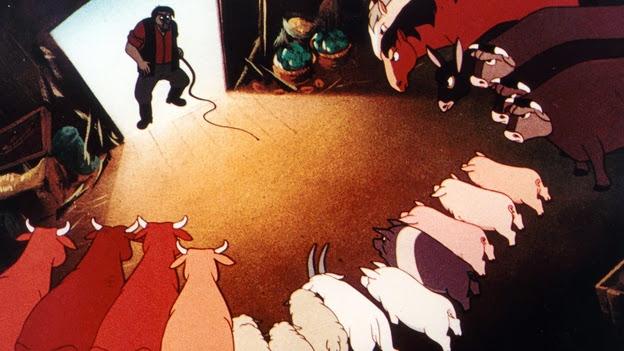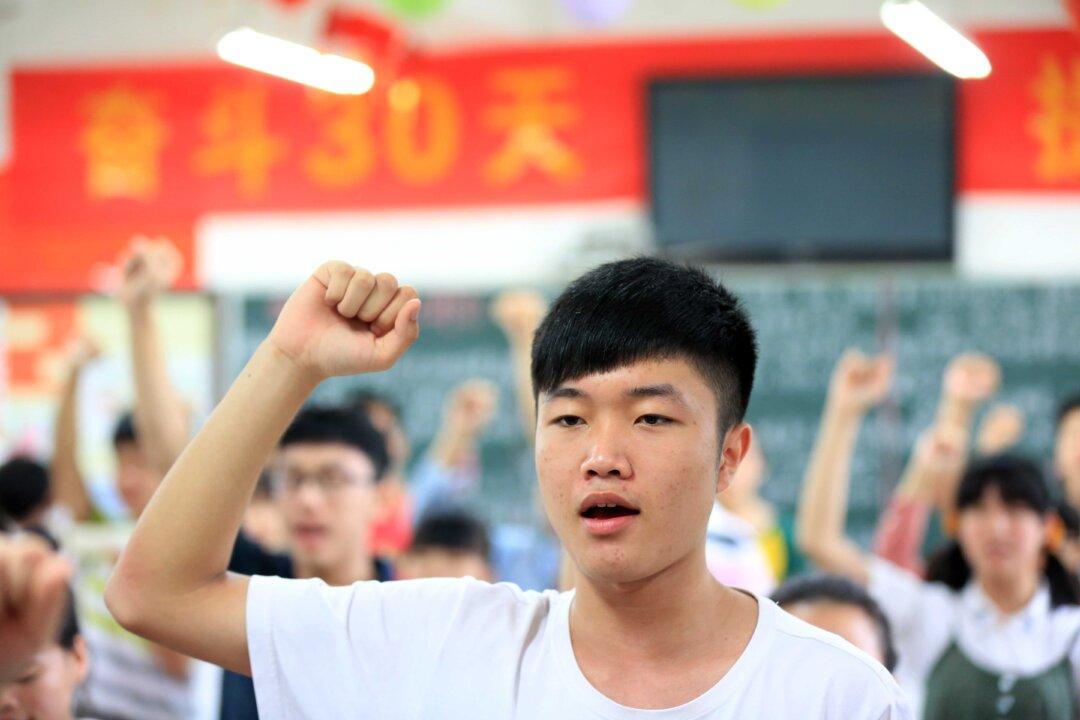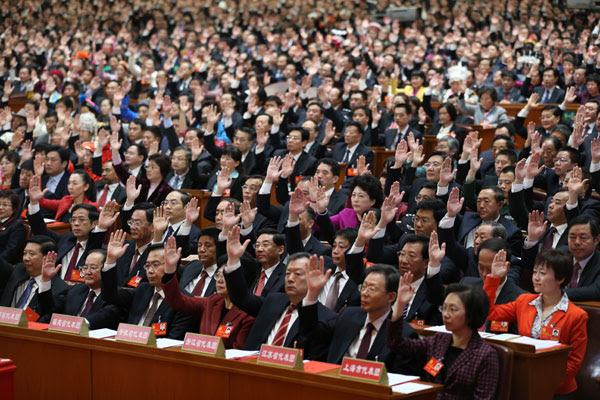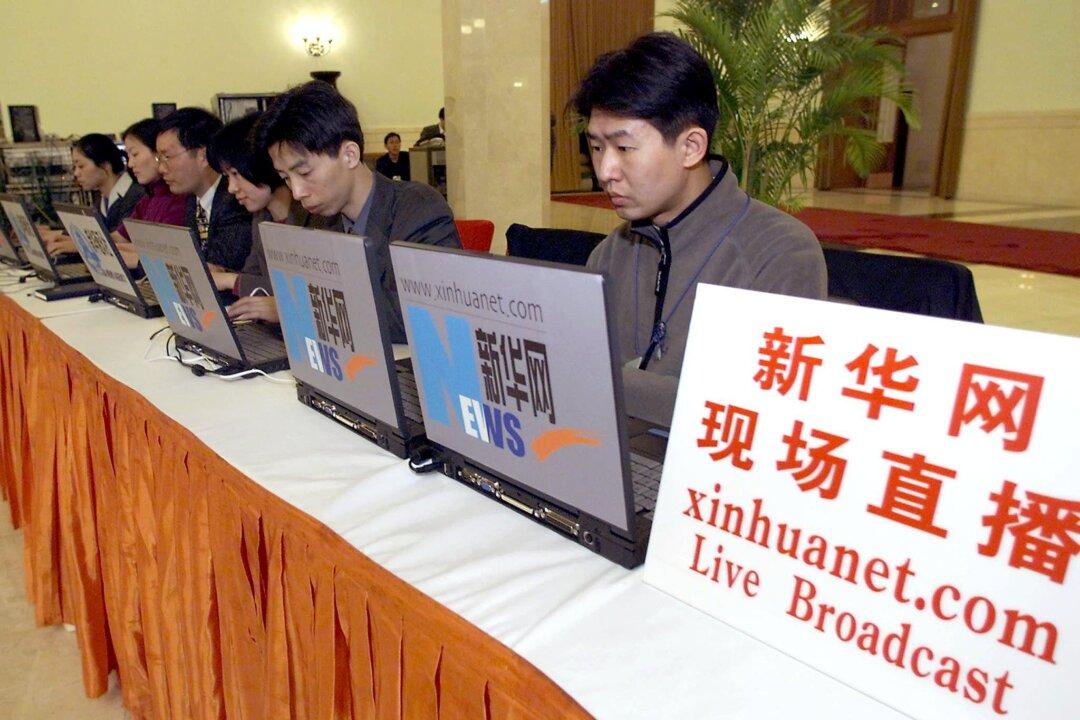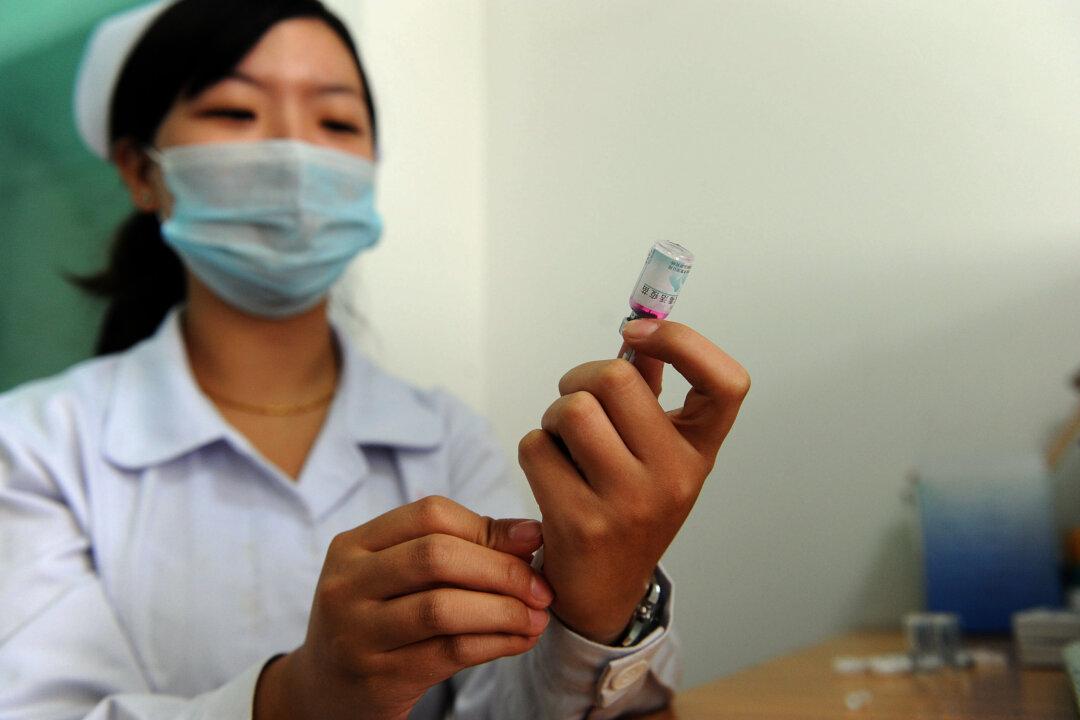This news summary was originally dispatched as part of Epoch Times China email newsletters. Subscribe to the newsletters by filling your email in the “China D-brief” box under this article, or sign up here.
Joke of the Week
“Question: Which four languages must be mastered by Party officials?”
“Um… English, French, maybe Russian and Japanese?”
“Incorrect. They are false talk, empty talk, big talk and political-formula talk.”
“Question: Which school has the highest crime rate among its graduates?”
“Um...Local vocational school? Martial arts school?”
“Incorrect. It is the Central Party School of the Communist Party of China.”
“Question: There is some being that you had heard of since childhood but have never seen in real life. What is it?”
“I am sure I know the answer this time. A ghost!”
“Incorrect. It’s a communist society.”
Socialist Fables
This is a series of political fables authored and posted by @格瓦拉 on Weibo. The author makes an analogy with George Orwell’s famous novella Animal Farm, composing short fictional stories about a farm in which a number of animals (groups of people) reside and “ruled” by a grandpa and his grandson (Party leaders and their relatives). The snippets are intended to reflect the reality of Chinese society under the Party, and to circumvent Internet censors in the process.
Slaughter spectator
A pig was going to be slaughtered at the farm. As the news spread, all the pigs in the farm gathered to watch the slaughter, and even remarked on it with interest. Another animal asked a pig: “How can you act like an irrelevant spectator when your own kind is being slaughtered?” The pig replied: “I’m not the one being slaughtered. More importantly, watching the misfortune of another somehow makes me feel that I am a pig of rather good luck.”
Don’t arm the hens
Egg production dropped significantly due to theft by rats. The grandpa sent cats to catch the rats—but before long, the cats figured out how valuable the eggs were, and began stealing the eggs themselves. Grandpa thus sent the dogs to monitor the cats, but they soon began stealing the eggs, too. Grandpa had to regularly “educate” and “discipline” the dogs and cats, and once in a while would punish them. One day, the grandson asked his grandpa: “Why not just give the hens weapons, and teach them how to protect their own eggs?” Grandpa replied: “Oh my foolish child, if we did that, we'd be their first targets!”
Next-Life Propagandist
China’s Internet commentators are often called the “50 Cent Party” (五毛党) as they are said to “be paid fifty cents of RMB for every post that either steers a discussion away from anti-party or sensitive content on websites, bulletin board systems, and chatrooms, or that advances the Communist party line” (as put by Wikipedia). Those willing to do the same work for free are usually called “Volunteer 50 Centers” (自干五).
Both terms are normally regarded as sneers in China, used by those who resent the Party’s online speech controls and propaganda. The official weibo account of China’s Communist Youth League, however, recently used the term in a positive sense in a poston Apr 12. The item included a video praising both the paid and unpaid “50 Cent Party.” The comment with the video said: “A toast with a jar of Lao Gan Ma [a well-known brand of hot sauce]; let’s swear to be a Volunteer 50 Centers in the next life!”
The post soon drew sarcastic remarks from Internet users. One person wrote: “So the Party now officially acknowledges the existence of hired Internet commentators?” Another remark said: “Oh my gosh, I can hardly think of a more malicious curse than being a next-life propagandist.”
One netizen found that the post contradicted the Party’s officially atheist ideology: “How can you believe in the existence of next life? Don’t forget you are supposed to speak for the Communist Youth League.”

Fake Milk Powder Ruled Safe
On April 4, China’s food safety administration made an unusual announcement, claiming that “Similac” and other brands of milk powder, which are under investigation for being counterfeit products, are “safe” for infant consumption. After being heavily questioned, the administration made another announcement three days later, claiming that the previous announcement was “to ease public panic.”
As below are a selection of sharp comments from Chinese netizens.
“Oh of course nobody will be in panic if they rest in peace after drinking fake milk.”
“Without serious punishment, fake milk will not be eliminated by an announcement saying how safe they are.”
“This sounds like a joke. As a state administration you should not act so unseriously.”
